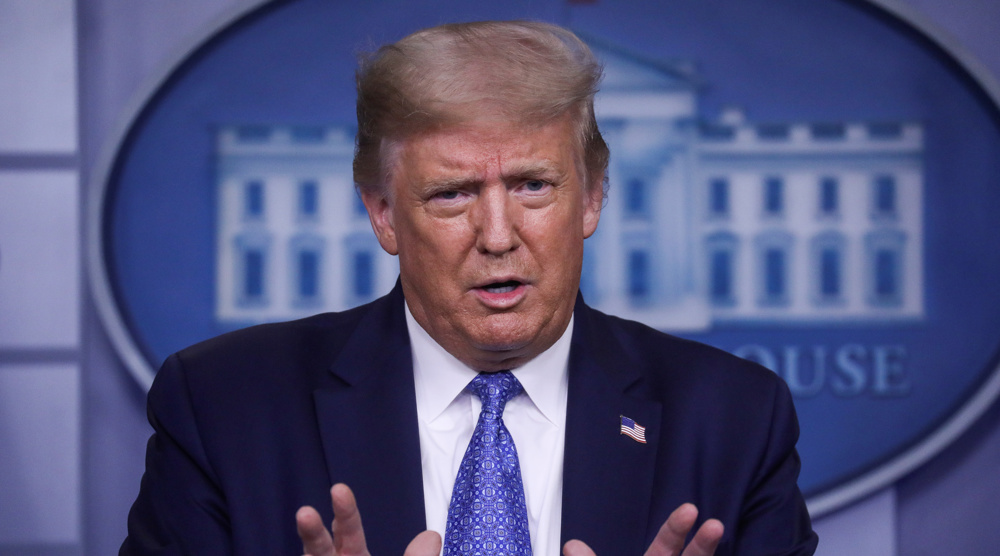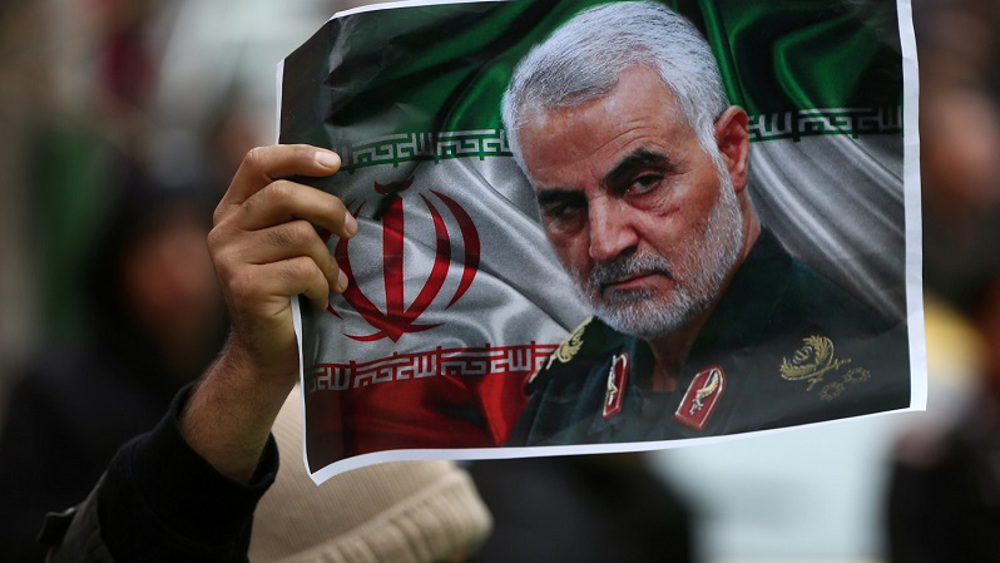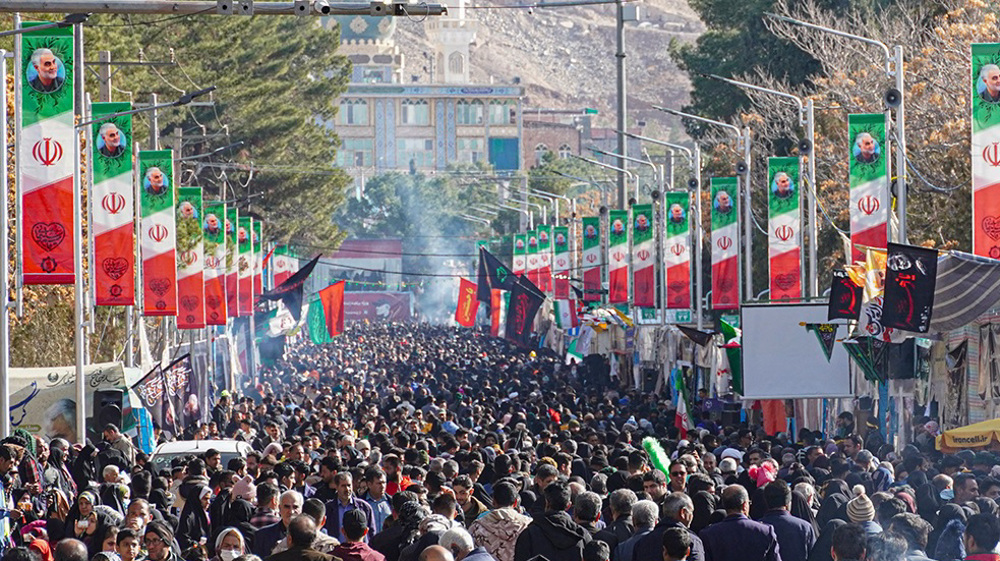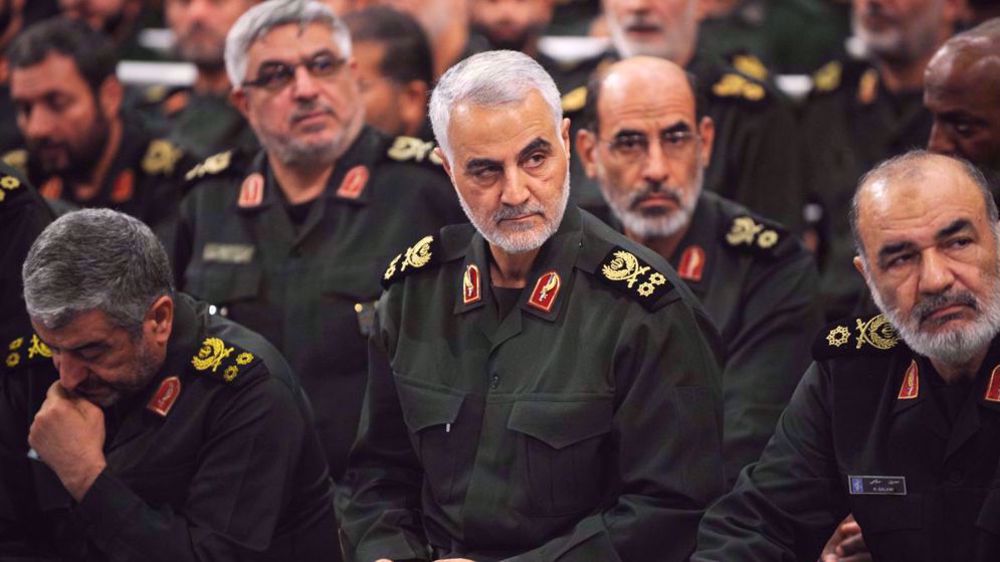Key senator mounts pressure on Trump to declassify report on Soleimani strike
Pressure is growing in the United States on President Donald Trump to declassify the legal justification for a US drone attack, which killed top Iranian anti-terror commander General Qassem Soleimani in Iraq in January.
For months, Sen. Chris Murphy (D-Conn.), among others, has been working to unearth the national security secret and find out the legal justification for Trump’s order of the assassination of General Soleimani.
The Trump administration sent Congress a formal notification of the assassination under the War Powers Act just after it happened, but kept it classified.
Murphy appealed to an agency called the Interagency Security Classification Appeals Panel (ISCAP), which is tasked with reviewing declassification requests.
“We’ve seen the Trump administration repeatedly classify information just because it is politically damaging to President Trump, and it’s up to Congress to stop it,” Murphy said in a statement.
“The American people deserve to know why the Trump administration chose to kill Qassem Soleimani back in January, since this event had far-reaching consequences for US security. By hiding the legal rationale for this action, there can be no meaningful public debate about the wisdom of the strike.”
Democrats denounced the Trump-authorized assassination as “highly unusual,” with observers saying it raised grave questions about the scope of Trump’s contempt for oversight, the presidential warmaking power and the ever-waning authority of Congress over those matters, Washington Post said.
Back in February, Murphy sent a letter to the White House demanding the declassification, as did other Democratic senators, including Senate Foreign Relations Committee Ranking Member Bob Menendez and Senate Democratic Leader Chuck Schumer. The White House never answered, Murphy’s office says.
The Democratic senators called for the Trump administration to immediately declassify the White House notification to Congress of the initiation of hostilities against Iran, pursuant to the War Powers Act of 1973, saying there was no legitimate justification for such extensive classification.
They said it is critical for the Trump administration to share additional information with the American people about the US military operation targeting General Soleimani, who commanded the Quds Force of Iran's Islamic Revolution Guards Corps (IRGC).
Murphy said that the Trump administration offered shifting and weak public rationales for the killing of General Soleimani.
The classified War Powers notification should contain the official reasoning and be backed up with real intelligence. It would allow us to properly evaluate that reasoning, he noted.
The Trump administration claimed at the time that the Soleimani strike was legal as an act of imminent self-defense under Article II of the US Constitution as well as the 2002 military authorization to invade Iraq.
Democrats maintained that General Soleimani was not planning any imminent attacks on US interests, raising the prospect that the strike was illegal.
The US assassination of General Soleimani and his Iraqi trenchmate Abu Mahdi al-Muhandis, the second-in-command of PMU counter-terrorism force, triggered a wave of anger and protests in Iran and beyond, with the people calling for an immediate revenge.
'Harsher revenge awaits perpetrators'
Leader of the Islamic Revolution Ayatollah Seyyed Ali Khamenei said on Tuesday that Iran will never forget Washington’s assassination of General Soleimani and will definitely deliver a “counterblow” to the United States.
Ayatollah Khamenei told visiting Iraqi Prime Minister Mustafa al-Kadhimi in Tehran that, “They (Americans) killed your guest at your own home and unequivocally admitted the atrocity. This is no small matter.”
The Leader had warned about a pending “harsh revenge.”
Also, Iran’s top security official said harsher revenge awaits the perpetrators of the attack that killed General Soleimani and his companions.
Iran’s Supreme National Security Council Ali Shamkhani said on Wednesday that, “The two Iranian and Iraqi nations are avengers of blood of these martyrs and will not rest until they punish the perpetrators.”
In retaliation for the US January attack, the IRGC fired volleys of ballistic missiles a US base in Iraq on January 8. According to the US Defense Department, more than 100 American forces suffered “traumatic brain injuries” during the counterstrike. The IRGC, however, says Washington uses the term to mask the number of the Americans, who perished during the retaliation.
Iran has also issued an arrest warrant and asked Interpol for help in detaining Trump, who ordered the assassination, and several other US military and political leaders behind the strike.
VIDEO | Hind Rajab Foundation names Israeli war criminals vacationing after Gaza genocide
VIDEO | Australians rally for Gaza ahead of Christmas festivities
VIDEO | Attacks on Sana'a
Iran reports further drop in annual inflation rate in December
Israel indicts two settlers over suspected spying for Hezbollah
Iran: US airstrikes on Yemen war crimes, violation of international law
Yemeni armed forces down F-18 fighter jet, repel US-UK attack: Spokesman
Iran warns against US-Israeli plot to weaken Muslims, dominate region












 This makes it easy to access the Press TV website
This makes it easy to access the Press TV website